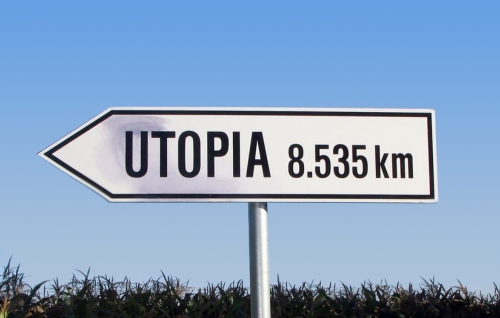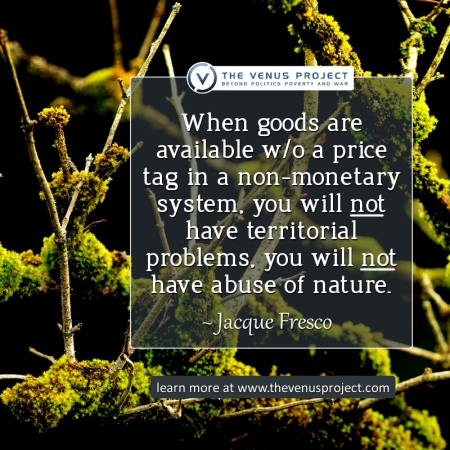By Enrique Lescure
Introduction
“Nice, just don’t mention our failed invasion of Poland.”
I asked Andrew if I had the permission to write this post, and he approved of it with the quote above – containing a characteristic joke from him. For eight years, Andrew was the director of the Earth Organisation for Sustainability, and also the most important theoretician of the movement. For a long while, I have aimed to write this post, but have not done it until I received explicit approval by Andrew.
Andrew’s style of leadership was partially due to his personality and background. A self-professed nerd with dry British humour, a keen interest not only in sustainability and robotics, but also in British war history (partially through the military traditions of the Wallace family) and theology, Andrew provided EOS not only with his theories and his thinking, but also with a warmness under a cynical and coarse surface.
This post will explain how Andrew has influenced EOS, and where we were when he was elected chairperson of the Board and where we are now, after his terms has been finished.
TL;DR Summary
- Andrew was not originally elected in an annual general meeting, but elected by the board following the resignation of the previous director.
- The background of Andrew’s thinking was in the application of distributed systems theory on society.
- Andrew presented the holonic systems theory.
- Andrew pioneered the proto-technate theory.
- During Andrew’s term, The Design was completed.
- Andrew is a visionary who has taken inspiration from Gene Roddenberry, Buckminster Fuller, and who strives towards a progressive and rational society.
The formative years, 2005-2007
The small group of people which originally formed the EOS were originally meeting one another on the Technocracy forums around 2003-2005. What was the unifying factor was the realisation that the current socio-economic system is inhernetly unsustainable, and that there should be an evolution towards a more sustainable form of resource management. As the command economies of the old east bloc had failed, people investigated more obscure and forgotten alternatives – and what we encountered there was the model of Energy Accounting. Though most of what would later become the core of NET/EOS were intrigued by the ideas of Energy Accounting, soon there arose differences between the largely European newcomers and the North American forum administration on that board, since the North Americans stressed that their proposed system had no serious flaws, that it was only applicable to North America and soon restricted forum access for Non-North Americans. Thus, the NET (Network of European Technocrats) was formed and soon migrated to a small, obscure freeware forum. In this group, Andrew played a central role in developing the ideas of Energy Accounting and how resources could be managed through it, which transcended the original scope and purpose of the North American design. The NET had two directors before Andrew, neither of whom sat for a very long period and neither of whom were able to keep a consistent line, due to the geographic separation of members. Thus, following Mansel Ismay’s resignation as NET director, the Board decided to ask Andrew if he could become director, and Andrew replied something in the style of, “well, if no one better comes along”.
Holonic Distribution Theory
Andrew – as an engineer – saw the proposed model by Technocracy Incorporated as centralised, semi-authoritarian and anachronistic. During the 1930’s, he argued, technology had indeed made massive centralisation the most efficient way of managing production. Nowadays however, technological development was (and is) pushing society towards more and more of networking solutions and collaborative efforts through the intelligent usage of information technology.
Thus, Andrew originally proposed the holonic systems model to describe both how the socio-economic system proposed by NET would organise itself on all levels, and how we could reach that stage of development through an organic, participatory and libertarian transition.
The holonic model means that the functions of society are organised through autonomous project groups which organise in a holarchical manner, at a large extent through transparency and voluntaryism. This means a self-aware society that is able to correct its own mistakes much like cells in a human body knows how to repair the body if it has sustained injury.
Andrew saw these “holons” as being coordinated – but not ordered – by functional sequences which contained one or several representatives in every project group. These would be responsible for transmitting information between holons and be authorised with the power to interrupt projects if they go out of hand (for example if a project group turns corrupt or start violating basic human rights).
If larger projects need to be undertaken, several project groups join together, forming larger project groups. And (to paraphrase a well-known Slovenian philosopher) so on and so on.
This model was in many ways a polar opposite to what Technocracy Incorporated imagined the future should look like, as they saw the taylorist model for organising industrial production as optimal.
Another difference, which was even more stark, was that NET was always clear with that it did not want to abolish democracy or independent courts, which Technocracy Inc. saw as inefficient systems prone to corruption, instead imagining that engineers could solve these problems far easier by design.
Andrew imagined the technate not as a new socio-economic system and as a new system of government at the same time. Instead, he saw the formation of a technate as the conscious part of a socio-economic system, while he wanted politics and justice being exerted by a mixture of democracy and constitutionalism. He envisioned a parallel system to the technate consisting of local and regional councils elected by direct democracy.
The Design (2011)
It could be said that the years of 2005 – 2010 were transitionary. The movement transcended the original design of Technocracy Incorporated in so many ways that it became more and more evident that it was becoming something more, and to many extents something else. This process was not without considerable pain and friction within the movement and within the Board itself.
Nevertheless, in 2011, the EOS presented the first edition of the book known as The Design, which is freely available. It was a collaborative effort within the EOS board, and also serves to illustrate Andrew’s style of leadership. Andrew expected independence from the board members, and never stressed himself as a sort of guiding force. There were never any attempts to form a cult of personality.
This attitude also moved outward, towards detractors and trolls. Andrew generally took their presence with calm, and always stressed that “only testing our design will prove if we are on the right path”. This emphasis on the scientific method and on using a language of caution regarding our theories did not serve to increase our popularity, but instead strengthened us as an organisation reliant on science and an honest questioning of ourselves.
The later years
Andrew arranged several evening lectures at Umea University every term regarding the Design, and was always active in the formation of the theoretical tenets. During the later years, he aimed to form a collaborative effort with the RBE Foundation, the Atlas City project, the Future Project, World Era and the New Z-land Project, known as the Terran Technate Consortium. The goal of this ambitious project was to start building the technate by joining the EOS together with other associations, and beginning small by having a website with a common register. This project soon came to an end, due to the partial or complete collapses of the other associations involved in it. However, the EOS managed to collaborate locally with Green Free Will, and helped them gain a grant for their biodome project in 2012-2015, which greatly improved the situation for everyone involved. During that time, however, Andrew himself was not as much involved as previous, as he had other commitments and interests, amongst them to his engagement for protecting society. During all the years I have known him, Andrew has been engaged in support activities to for example help find people who have disappeared. He has been engaged in amateur radio, in programming, in outdoor-life and in robotics. With interests ranging over a wide field, he has often been an invaluable source of information and knowledge.
Summary
Dr. Andrew Alexander Wallace contributed much to the evolution of the EOS, and formed the core tenets of the holonic systems theory as applied on The Design. Much more a theoretician than a leader, his style of leadership allowed the other board members the freedom to pursue the areas where they contributed best towards the overall goal.
His passions were the Earth, Truth and Science, and through his engagement to forming the ideas of the EOS – but also his willingness to question them – he contributed in more ways than he himself probably could imagine.
As his successor, it will forever remain an honour for me to have worked in two boards during his chairpersonship, and to have learned to know him.





























